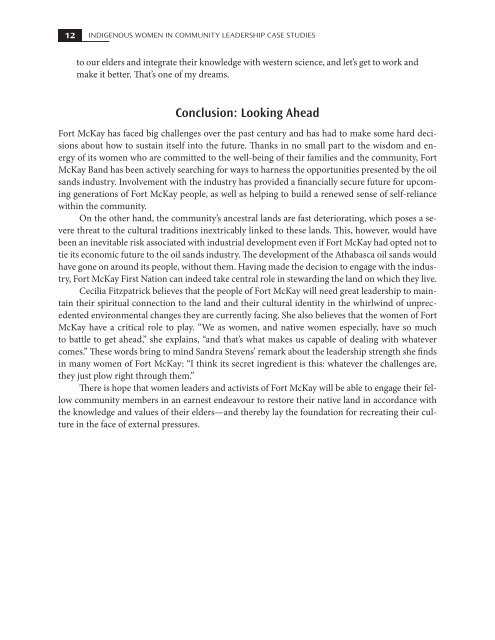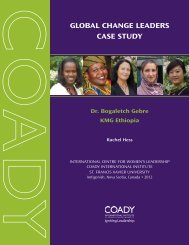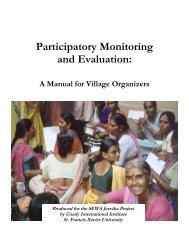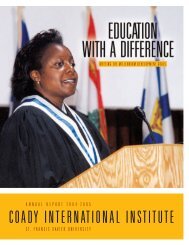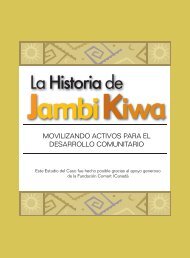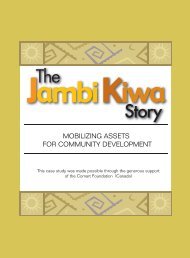Fort McKay First Nation, Alberta - Coady International Institute - St ...
Fort McKay First Nation, Alberta - Coady International Institute - St ...
Fort McKay First Nation, Alberta - Coady International Institute - St ...
You also want an ePaper? Increase the reach of your titles
YUMPU automatically turns print PDFs into web optimized ePapers that Google loves.
12 IndIGenous Women In CommunIty leadershIp Case studIes<br />
to our elders and integrate their knowledge with western science, and let’s get to work and<br />
make it better. That’s one of my dreams.<br />
Conclusion: Looking Ahead<br />
<strong>Fort</strong> <strong>McKay</strong> has faced big challenges over the past century and has had to make some hard decisions<br />
about how to sustain itself into the future. Thanks in no small part to the wisdom and energy<br />
of its women who are committed to the well-being of their families and the community, <strong>Fort</strong><br />
<strong>McKay</strong> Band has been actively searching for ways to harness the opportunities presented by the oil<br />
sands industry. Involvement with the industry has provided a financially secure future for upcoming<br />
generations of <strong>Fort</strong> <strong>McKay</strong> people, as well as helping to build a renewed sense of self-reliance<br />
within the community.<br />
On the other hand, the community’s ancestral lands are fast deteriorating, which poses a severe<br />
threat to the cultural traditions inextricably linked to these lands. This, however, would have<br />
been an inevitable risk associated with industrial development even if <strong>Fort</strong> <strong>McKay</strong> had opted not to<br />
tie its economic future to the oil sands industry. The development of the Athabasca oil sands would<br />
have gone on around its people, without them. Having made the decision to engage with the industry,<br />
<strong>Fort</strong> <strong>McKay</strong> <strong>First</strong> <strong>Nation</strong> can indeed take central role in stewarding the land on which they live.<br />
Cecilia Fitzpatrick believes that the people of <strong>Fort</strong> <strong>McKay</strong> will need great leadership to maintain<br />
their spiritual connection to the land and their cultural identity in the whirlwind of unprecedented<br />
environmental changes they are currently facing. She also believes that the women of <strong>Fort</strong><br />
<strong>McKay</strong> have a critical role to play. “We as women, and native women especially, have so much<br />
to battle to get ahead,” she explains, “and that’s what makes us capable of dealing with whatever<br />
comes.” These words bring to mind Sandra <strong>St</strong>evens’ remark about the leadership strength she finds<br />
in many women of <strong>Fort</strong> <strong>McKay</strong>: “I think its secret ingredient is this: whatever the challenges are,<br />
they just plow right through them.”<br />
There is hope that women leaders and activists of <strong>Fort</strong> <strong>McKay</strong> will be able to engage their fellow<br />
community members in an earnest endeavour to restore their native land in accordance with<br />
the knowledge and values of their elders—and thereby lay the foundation for recreating their culture<br />
in the face of external pressures.


